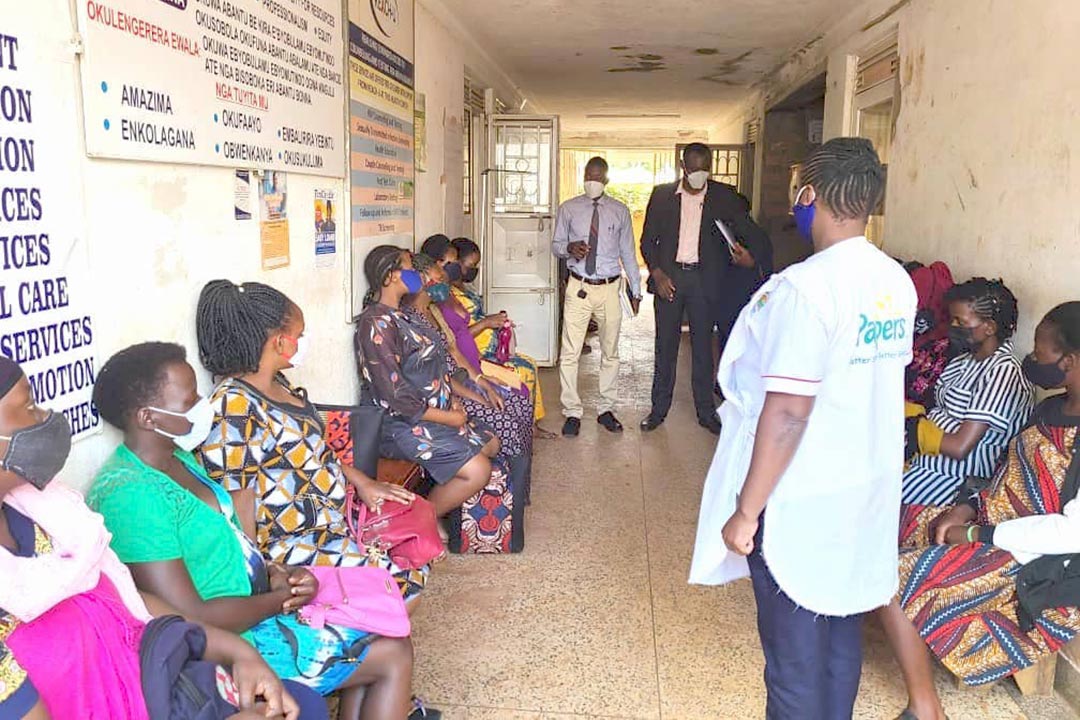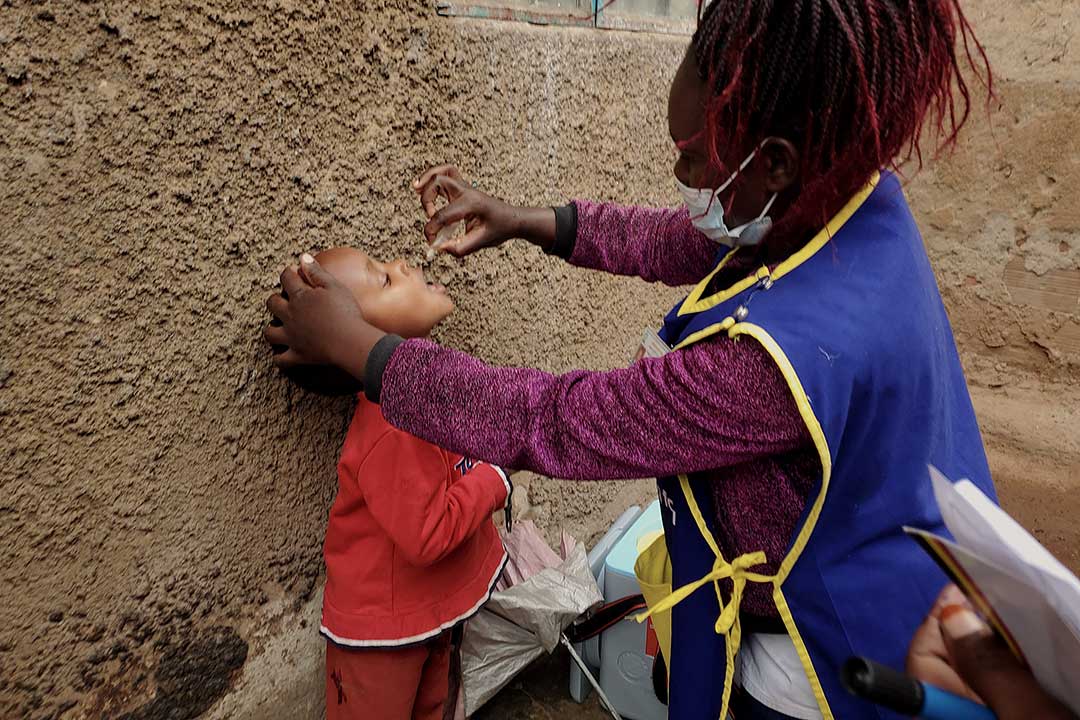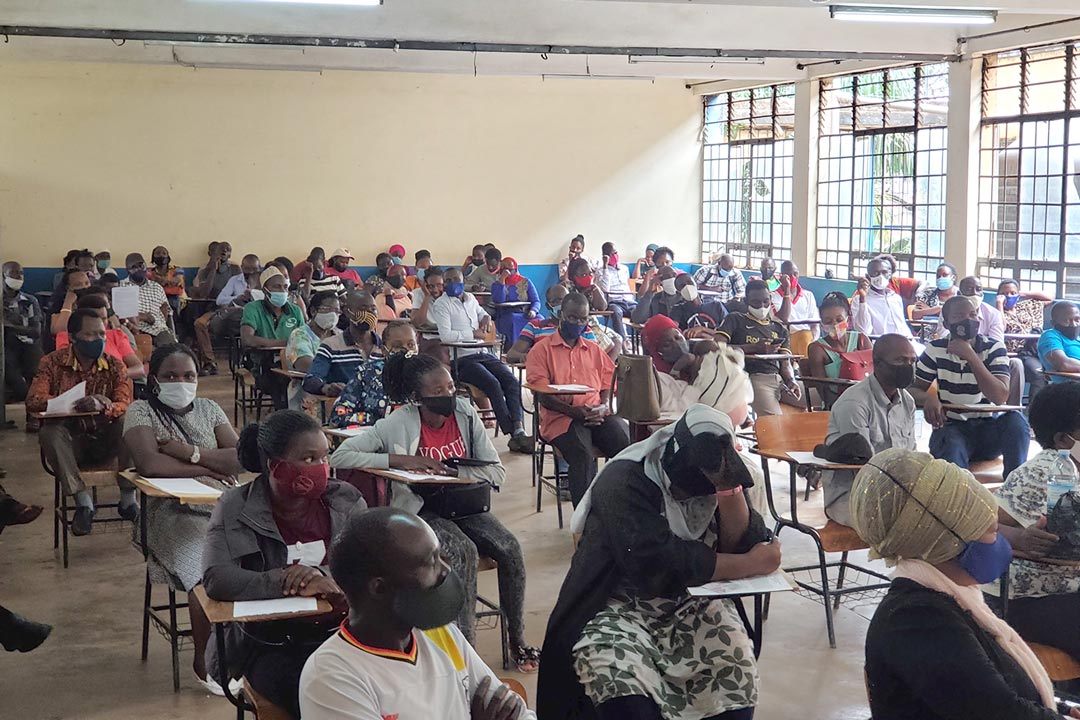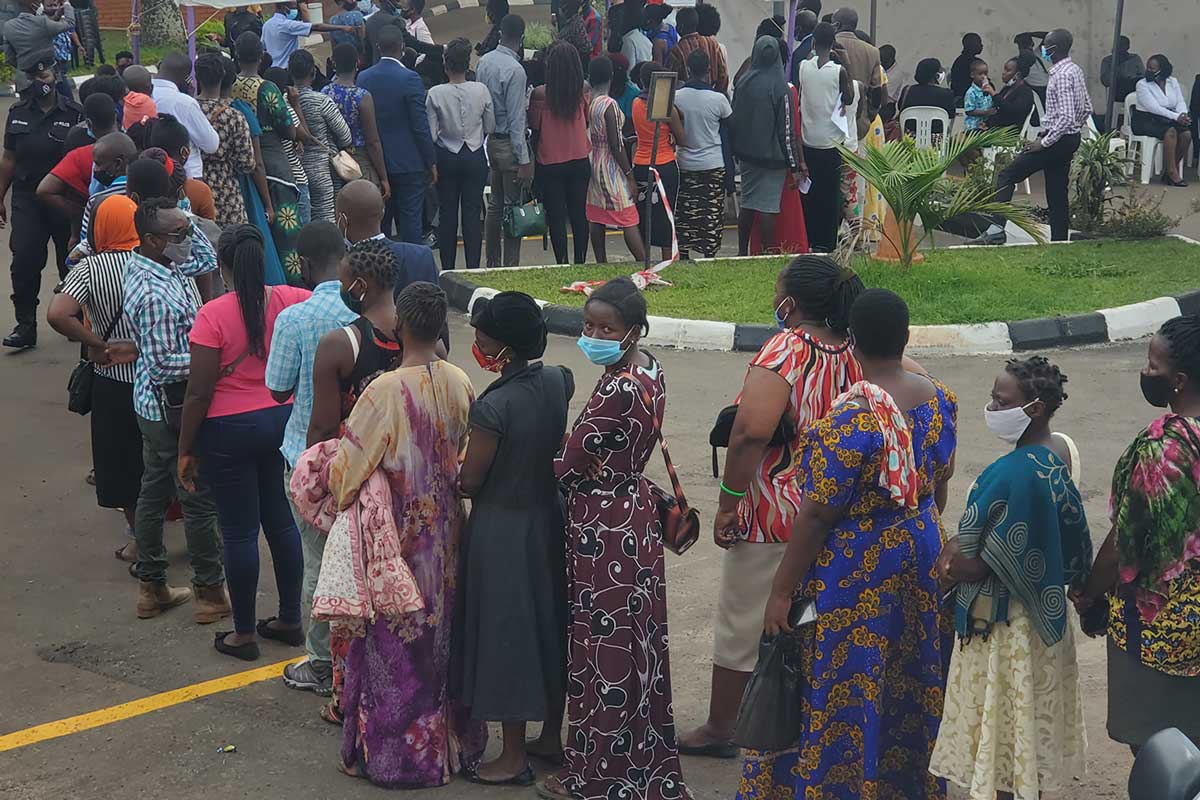COVID-19 vaccines bring relief to Ugandans living with HIV
The pandemic has been tough for the 1.4 million Ugandans living with HIV, but the arrival of the COVID-19 vaccine has brought some welcome relief.
- 10 May 2021
- 4 min read
- by Evelyn Lirri
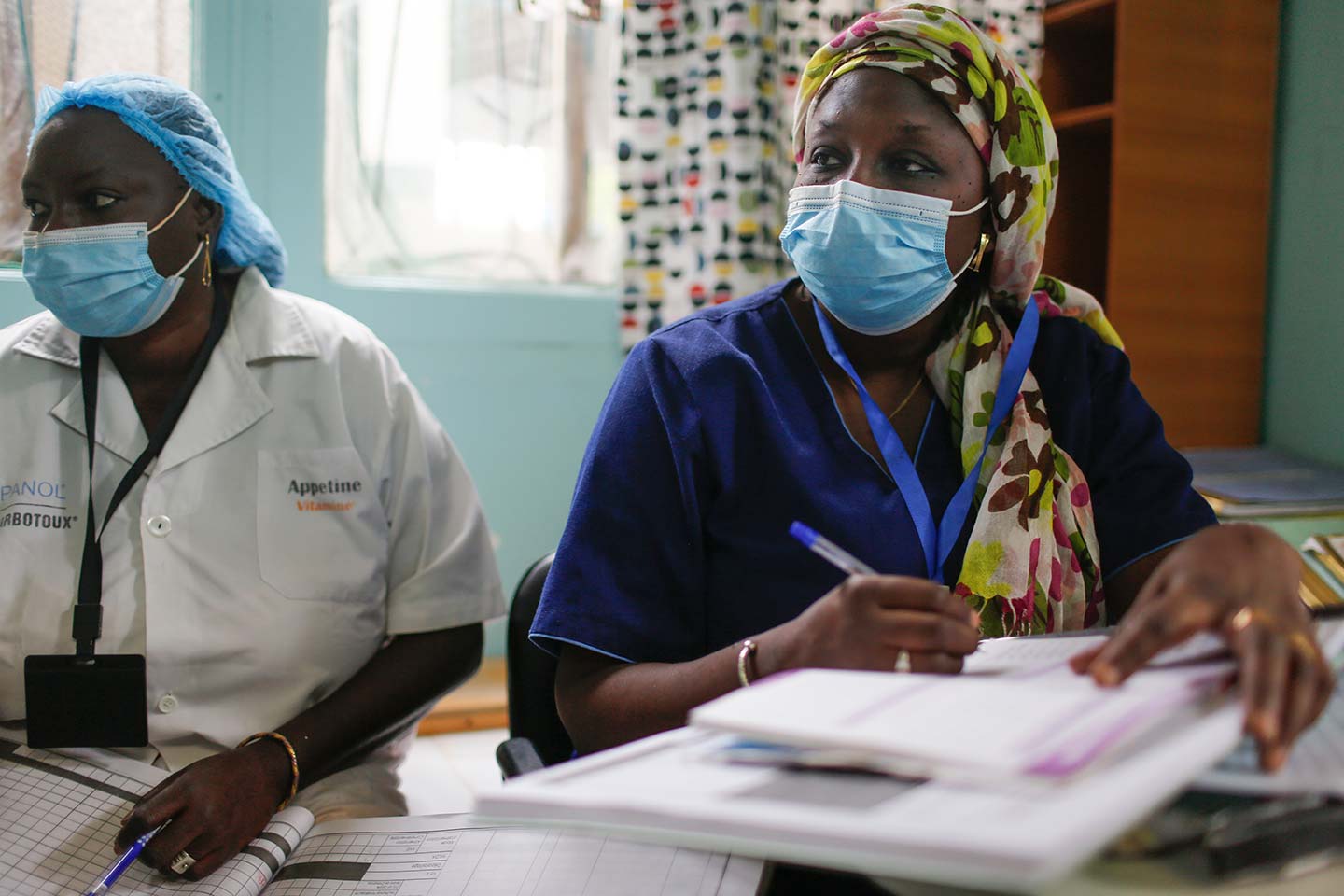
When Uganda registered the first case of COVID-19 in March 2020, Kuraish Mubiru’s biggest fear was how the virus would affect him if he contracted it.
“Right from the start, there were a lot of myths and misconceptions about COVID-19, including for people who have other pre-existing ailments. Naturally, I was afraid it would have a severe impact on my health, if I got the virus,” he says.
Mubiru, 29, was born with HIV. Although taking antiretroviral drugs every day has kept his viral load suppressed and ensured that he continues to live a normal, healthy life, the COVID-19 pandemic presented a new threat.
Mubiru, who got his first dose of the vaccine in mid-April, says it has brought a lot of relief.
“You have to worry about HIV, taking medication every day and the possible side effects that come with it, and then you have to worry about COVID-19,” says Mubiru.
“You cannot tell how the COVID-19 virus will affect you when you get it, especially if you are also living with HIV, and it doesn’t matter if you are young or old. I have had to be extra careful by wearing masks at all times and following other prevention measures like social distancing.”
After Uganda received its first shipment of 864,000 doses of the AstraZeneca vaccine from the COVAX Facility in early March, people under 50 with existing comorbidities, such as people living with HIV, were included in the priority groups for the first phase of the vaccine rollout. There are an estimated 1.4 million people living with HIV/Aids in Uganda, according to statistics from the Uganda Aids Commission (UAC), the body responsible for coordinating HIV programmes in the country.
Mubiru, who got his first dose of the vaccine in mid-April, says it has brought a lot of relief.
“When the chance to get vaccinated came up, I didn’t look back and I am now looking forward to my second dose,” says the father of two. Mubiru’s wife, who is also living with HIV, is due to get her first dose this month.
“The only side effect I experienced was nausea and pain on the site of the vaccination. Now I’m hopeful that even if I got the coronavirus, I will most likely not suffer from severe effects of the disease,” he adds.
Martha Clara Nakato says she feels privileged to be among the first recipients of the vaccine in the country. The 24-year-old was born with HIV and has relied on antiretroviral therapy since the age of 14 to live a healthy and normal life.
“With new strains of the COVID-19 virus being reported across the world, a person who is vaccinated stands a higher chance of surviving even if they get the virus, more than one who has not been vaccinated. I won’t deny the fact that these days when I go out, I feel safer,” she explains.
As a young activist, Nakato is also using her influence to mobilise other young people living with HIV to take up the vaccine.
“I am actually telling them that if they have a chance to take the vaccine, they should do so. We, as activists, are both going out to the communities and reaching others through online platforms to making them aware that there is a COVID-19 vaccine,” says Nakato.
But not all young people have warmed up to the vaccine yet. Concerns about potential side effects and the lack of information have kept some people living with HIV away from taking the vaccine.
“That’s why we are using our experiences to encourage others. I had a few side effects but they were gone in a few days,” Nakato further explains.
Dr Jimmy Ssewanyana, from Lira Regional Referral Hospital, says there has been public concern about how the vaccine might affect people whose immunity has already been weakened by HIV.
“We tell them that is why the Ministry of Health included them in the priority group. Being vaccinated saves them from getting severe forms of the disease. If you get COVID-19 and you have HIV, your immune system will be suppressed further and that means getting other infections,” explains Dr Ssewanyana.
Dr Stephen Watiti, who chairs the National Forum of People Living with HIV/Aids Networks in Uganda is one of the first Ugandans who received the AstraZeneca vaccine in March.
“As a frontline health worker and as a person living with HIV, I feel safer knowing that I have been vaccinated. I am now preparing to get my second dose,”
